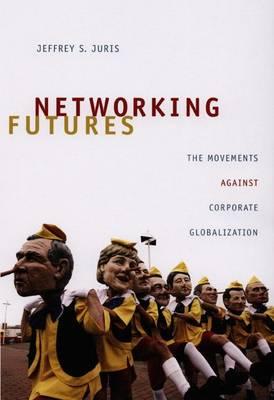Since the first worldwide protests inspired by Peoples' Global Action (PGA)-including the mobilization against the November 1999 World Trade Organization meetings in Seattle-anti-corporate globalization activists have staged direct action protests against multilateral institutions in cities such as Prague, Barcelona, Genoa, and Cancun. Barcelona is a critical node, as Catalan activists have played key roles in the more radical PGA network and the broader World Social Forum process. In 2001 and 2002, the anthropologist Jeffrey S. Juris participated in the Barcelona-based Movement for Global Resistance, one of the most influential anti-corporate globalization networks in Europe. Combining ethnographic research and activist political engagement, Juris took part in hundreds of meetings, gatherings, protests, and online discussions. Those experiences form the basis of Networking Futures, an innovative ethnography of transnational activist networking within the movements against corporate globalization.In an account full of activist voices and on-the-ground detail, Juris provides a history of anti-corporate globalization movements, an examination of their connections to local dynamics in Barcelona, and an analysis of movement-related politics, organizational forms, and decision-making. Depicting spectacular direct action protests in Barcelona and other cities, he describes how far-flung activist networks are embodied and how networking politics are performed. He further explores how activists have used e-mail lists, Web pages, and free software to organize actions, share information, coordinate at a distance, and stage "electronic civil disobedience." Based on a powerful cultural logic, anti-corporate globalization networks have become models of and for emerging forms of radical, directly democratic politics. Activists are not only responding to growing poverty, inequality, and environmental devastation; they are also building social laboratories for the production of alternative values, discourses, and practices.











